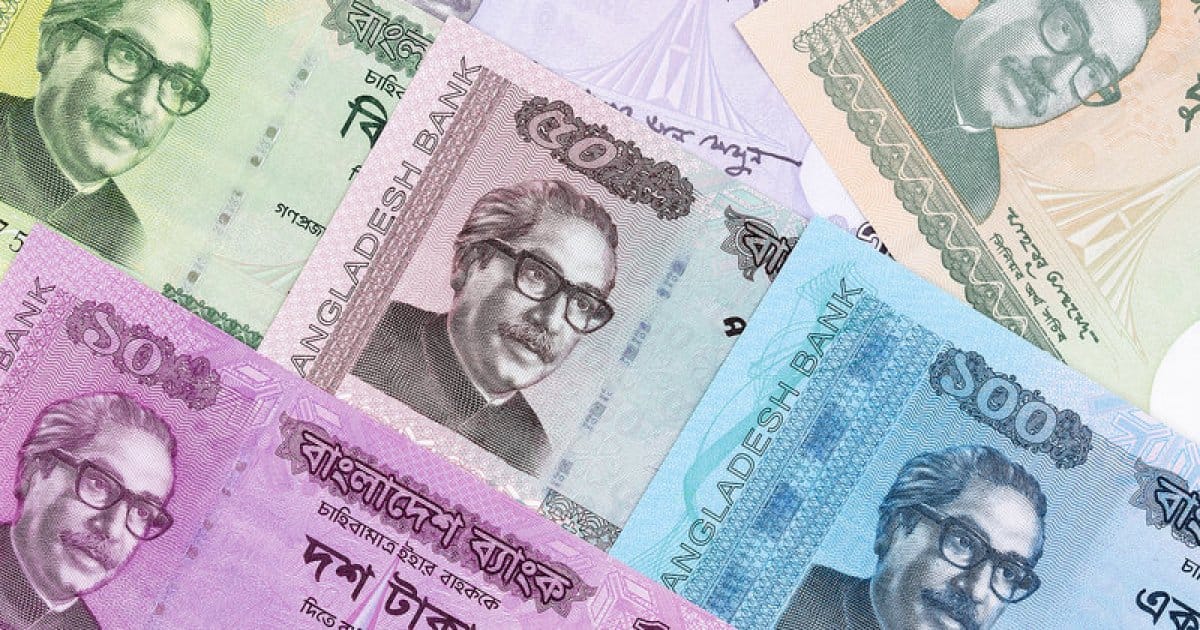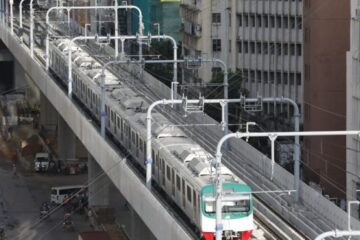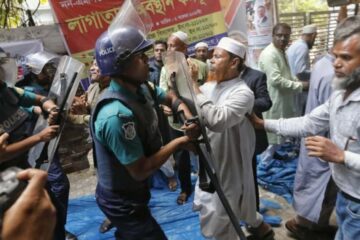Bangladesh’s economy is showing signs of mounting stress, as export earnings decline, inflation edges upward, and private sector investment remains stagnant.
After a period of relative stability, the country’s export performance has faltered for two consecutive months, while inflation—previously tempered following a change in government—has resumed its upward trajectory.
Combined with high interest rates, political uncertainty, and energy shortages, these factors have placed the national economy in a precarious position.
Economy loses steam
A confluence of challenges—political instability, elevated inflation, restricted credit access, and stringent central bank policies—has pushed the economy onto a downward path.
Several industrial establishments across key sectors have shuttered operations, and new investments remain on hold.
The situation has been further exacerbated by declining international credit ratings, revenue shortfalls, and weak inflows from overseas employment.
Analysts suggest that restoring political stability under an elected government could help revive economic momentum.
However, the interim administration has made limited progress in this regard.
Many prominent entrepreneurs and investors have either relocated abroad or are hesitant to commit to new ventures amid the prevailing uncertainty.
According to the latest data from Bangladesh Bank, total private sector credit stood at Tk17,47,000 crore at the end of August—marginally higher than in July—but the growth rate has slowed to a nominal level.
Industrial expansion is also being constrained by persistent electricity and gas shortages.
Export earnings decline
The export sector, which had remained relatively stable earlier this year, experienced a sharp downturn in August and September.
Data from the Export Promotion Bureau (EPB) shows that export earnings fell by approximately 3% in August and by another 4.61% in September.
Despite a 5.64% year-on-year increase in total export earnings during the first quarter of the fiscal year (July–September), the recent two-month decline has raised red flags among trade analysts.
In September, exports of ready-made garments, home textiles, agricultural products, jute and jute goods, leather-free footwear, and plastic products all declined.
However, there were modest gains in frozen foods, leather, and engineering goods.
Experts attribute the overall decline to retaliatory tariffs from the United States, reduced demand in European markets, and rising raw material costs.
“Political uncertainty and international market pressures are clearly affecting exports,” one analyst noted.
“Due to a lack of new investment, many factories have scaled back production, which is directly impacting export earnings.”
Credit growth slumps to record low
Private sector investment has stagnated, largely due to political instability and high interest rates.
Between June and August, private sector credit growth fell below 7%, reaching just 6.35% in August—the lowest level in 22 years.
Industry insiders report that new investments have been shelved, and some operational factories have partially shut down.
Limited lending by state-owned banks and a rise in policy interest rates by Bangladesh Bank have increased borrowing costs, discouraging entrepreneurs from initiating new projects.
According to the Bangladesh Bank, this is the lowest credit growth since 2003.
Dhaka Chamber of Commerce and Industry President Taskeen Ahmed said: “High interest rates and political uncertainty have reduced private sector credit flows. Investment will increase once conditions stabilize after the elections.”
Following last year’s student-led protests and the subsequent change in government, investment activity has slowed significantly.
With constrained lending from both public and private banks, financial institutions have redirected capital toward government bonds and treasury bills.
Inflation climbs again
Consumer prices rose again in September, particularly for essential items such as vegetables and fresh chilies, which saw price increases ranging from Tk10 to Tk300 per kilogram.
According to the Bangladesh Bureau of Statistics (BBS), general inflation reached 8.36% in September, up from 8.29% in August.
Food inflation stood at 7.64%, while non-food inflation climbed to 8.98%, with both rural and urban areas experiencing price pressures.
AHM Shafiquzzaman, president of the Consumer Association of Bangladesh (CAB), attributed the rise to monsoon-related supply chain disruptions.
“Direct procurement from farmers could help control price increases,” he suggested.
The BBS calculates the Consumer Price Index (CPI) based on 749 items across 383 categories, including food, education, internet usage, restaurants, beverages, and tobacco products.
Business push back on high rates
Business leaders have voiced strong concerns over the current high bank lending rates, which they argue are stifling enterprise growth.
On Thursday, a 14-member delegation comprising representatives from the FBCCI, BGMEA, BKMEA, and BTMA met with Bangladesh Bank Governor Dr Ahsan H Mansur to press for a reduction in the policy rate.
FBCCI Secretary General Md Alamgir said: “Currently, interest rates exceed 14%, while small and medium enterprises typically earn 10–11% profit. Such high rates are not business-friendly and severely undermine global competitiveness.”
The delegation urged the central bank to gradually reduce interest rates to single digits to stimulate investment, control inflation, and maintain competitiveness.
The delegation also requested a six-month extension for restructuring loans affected by the Covid-19 pandemic, the Russia–Ukraine conflict, floods, and ongoing political instability.
Additionally, they proposed forming a special committee to address banking challenges faced by export-oriented industries.
Resilience amid turbulence
Despite broader economic challenges, Bangladesh’s industrial and external sectors have shown signs of recovery.
The Purchasing Managers Index (PMI) rose to 59.1 in September from 58.3 in August, indicating expansion, while agriculture and construction also posted gains.
According to Dr M Masrur Riaz of Policy Exchange Bangladesh, budget implementation and favorable weather supported this growth, though high inflation continues to slow the services sector.
Meanwhile, the external sector strengthened with a $483 million current account surplus in July–August FY 2025–26, driven by a 10.7% rise in exports and an 18.4% surge in remittances.



